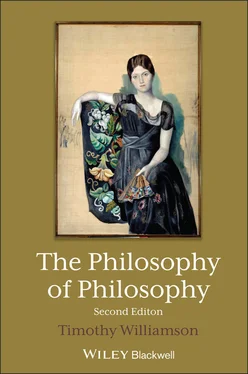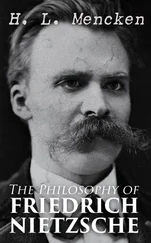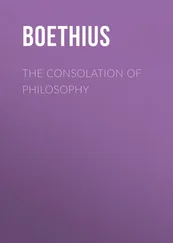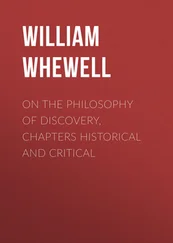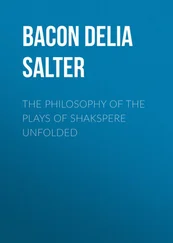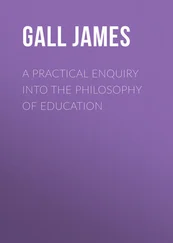The epistemology of counterfactual conditionals is correspondingly central to the epistemology of philosophers’ thought experiments and modal judgments, in the first edition. It emphasizes the key cognitive role of the imagination in determining what would hold on a counterfactual supposition. On my account of conditionals, our primary heuristic for cognitively assessing conditionals involves suppositional thinking, in a reinterpreted Ramsey test (2020a: 15–88). We apply a derivative form of the heuristic to assess counterfactual conditionals (2020a: 189–213). I have also explored the general cognitive function of the imagination more extensively (2016c, 2020c). This work on the cognitive role of supposing and imagining has not been at all specific to philosophical thinking, but subsumes allegedly puzzling aspects of it under much more general forms of human cognition, vindicating the anti-exceptionalist approach.
The first edition uses the role of the imagination in ordinary counterfactual and modal thinking to cast doubt on the idea that the distinction between a priori and a posteriori knowledge cuts at the cognitive or epistemological joints (167–171, this volume). In later work, I have sharpened and deepened that critique of the distinction, and replied to objections to it (2013b, 2021b, 2021c; Boghossian and Williamson 2020). Again, those arguments are not at all specific to philosophical cognition, but also tend to vindicate anti-exceptionalism about its nature, insofar as it is taken to be a priori .
Chapter 4of the first edition, on epistemological conceptions of analyticity, originated in a symposium with Paul Boghossian at the 2003 Joint Session of the Aristotelian Society and Mind Association, chaired by Crispin Wright – Paul and I talked at such length that no time was left for Crispin to present his comments; I still feel bad about that. Since then, Paul and I have had a series of further exchanges on understanding, the a priori , and intuition, culminating in our book (Boghossian and Williamson 2020). Section 12.2 is my half of one of those exchanges, in a book symposium on the first edition. The later rounds are also relevant to the epistemological arguments of this book, although they are not specific to the epistemology of philosophy.
Chapter 7 of the first edition, on evidence in philosophy, in effect applies the general account of evidence defended in Knowledge and its Limits to the special case of philosophy. I have continued to uphold that account of evidence, though usually without special reference to philosophy (2021e).
I have also written for a much wider readership on what philosophy does and how (2018a, 2018d). 14
The Preface to the first edition ends with an expression of my enjoyment in doing philosophy. I am happy to report that, fourteen years later, it continues to provide just as much pleasure.
1 1 For citations in this form, “Williamson” is understood.
2 2 Abductive arguments in philosophy are mentioned in the first edition (184, 210, this volume). Unless specified otherwise, page references in this preface are to the first edition of this book, as reprinted here.
3 3 Peter died far too young, in 2007. His work reminds me of Beethoven’s view of Handel: a master of achieving great effects by simple means.
4 4 My work in continued defense of an abductive methodology for choosing between rival candidates for the first principles of logic and mathematics (2013a: 423–9, 2017b, 2018b) is too specialized to be appropriately included in the present volume. For a more “popular” account of abduction in philosophy see 2018a: 66–81.
5 5 For uses of model-building in my work see Shin and Williamson 1996, various passages in 2000a, and 2013c, 2014b, 2015a, 2019b, 2020b.
6 6 For a more “popular” account of model-building in philosophy see 2018a: 127–40.
7 7 Incidentally, one of those now engaged in this much-needed work is Paolo Tripodi, with an earlier incarnation of whom I take issue in Chapter 13.5.
8 8 For a more general and “popular” discussion of the relation between philosophy and its history see 2018a: 98–110.
9 9 See 2013c, 2015a. These papers are not included in the present volume because they are mainly occupied with epistemological and technical issues, exemplifying rather than discussing philosophical methodology.
10 10 See 2018a: 111–26 for brief “popular” discussions of some close links between philosophy and various other disciplines.
11 11 A more accurate statement replaces “the property of being a vixen” with a second-order analogue, as explained in 2013a.
12 12 Both negative and positive associations of the word “control” are intended.
13 13 2017e, 2018c, and 2021d defend the counterfactual approach to modal epistemology but were written before my change of view on the semantics of counterfactual conditionals.
14 14 The present text of the first edition corrects mistakes which escaped my proofreading, on pages 166, 180, and 306: thanks to Andrew Melnyk, Chi-Yen Liu, and David Etlin respectively. I have silently corrected a few similar mistakes in the added sections. I have also made various verbal adjustments in the added sections for the sake of smooth reading in the new context of the second edition.
Preface to the First Edition
This book grew out of a sense that contemporary philosophy lacks a self-image that does it justice. Of the self-images that philosophy inherited from the twentieth century, the most prominent – naturalism, the linguistic turn, post-modern irony, and so on – seemed obviously inadequate to most of the most interesting work in contemporary philosophy: as descriptions, false when bold, uninformative when cautious. Less prominent alternatives too seemed implausible or ill-developed. Although an adequate self-image is not a precondition of all virtue, it helps. If philosophy misconceives what it is doing, it is likely to do it worse. In any case, an adequate self-image is worth having for its own sake; we are not supposed to be leading the unexamined life. This is my attempt to do better.
I considered using the phrase “philosophical method” in the title, but decided against on the grounds that it seemed to promise something more like a recipe for doing philosophy than I believe possible. When asked for advice on some occasion, the Duke of Wellington is said to have replied “Sir, you are in a devilish awkward predicament, and must get out of it as best you can.” My advice would be scarcely more useful. At the crucial point, I can only say “Use your judgment.” The primary task of the philosophy of science is to understand science, not to give scientists advice. Likewise, the primary task of the philosophy of philosophy is to understand philosophy, not to give philosophers advice – although I have not rigorously abstained from the latter.
I also rejected the word “metaphilosophy.” The philosophy of philosophy is automatically part of philosophy, just as the philosophy of anything else is, whereas metaphilosophy sounds as though it might try to look down on philosophy from above, or beyond. One reason for the survival of implausible self-images of philosophy is that they have been insufficiently scrutinized as pieces of philosophy. Passed down as though they were platitudes, they often embody epistemologically or logically naïve presuppositions. The philosophy of philosophy is no easier than the philosophy of science. And like the philosophy of science, it can only be done well by those with some respect for what they are studying.
The book makes no claim to comprehensiveness. For example, it does not engage in detail with critics of analytic philosophy who do not engage with it in detail. I preferred to follow a few lines of thought that I found more rewarding. I hope that philosophy as I have presented it seems worth doing and not impossibly difficult. At any rate, I enjoy it.
Читать дальше
